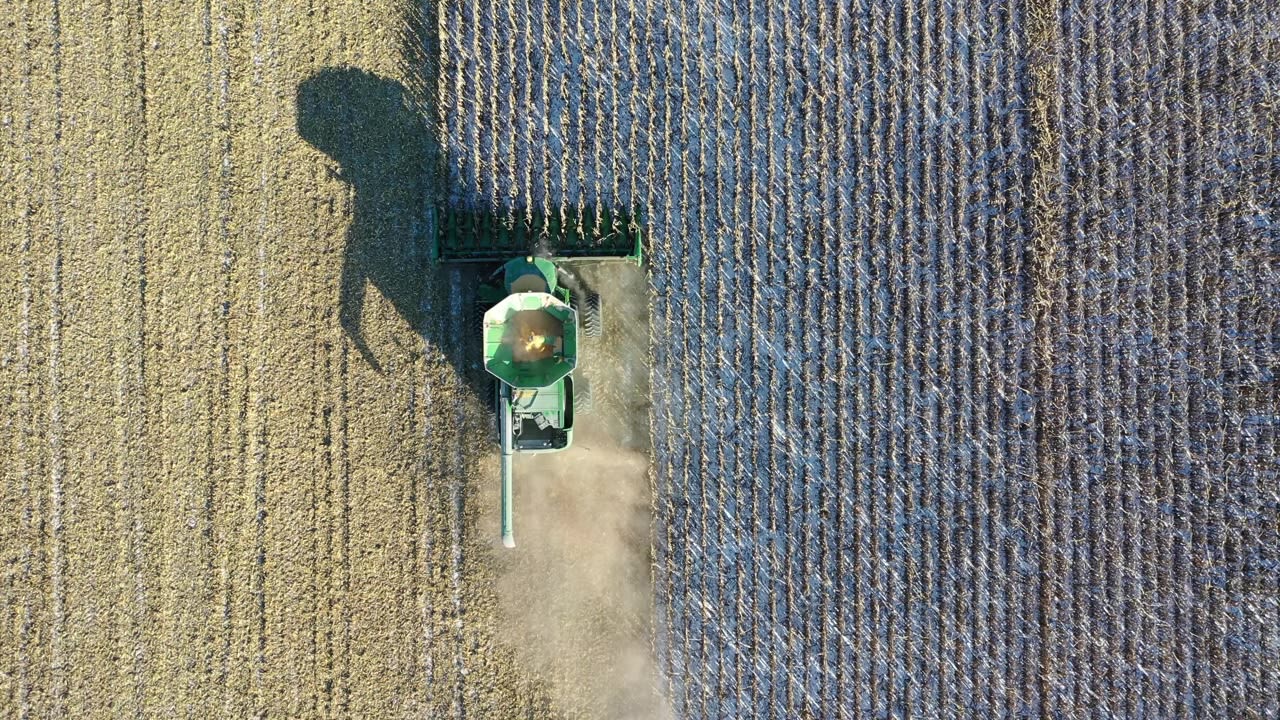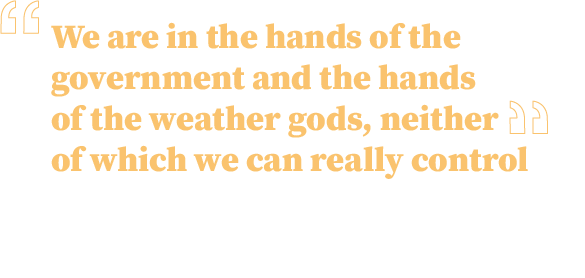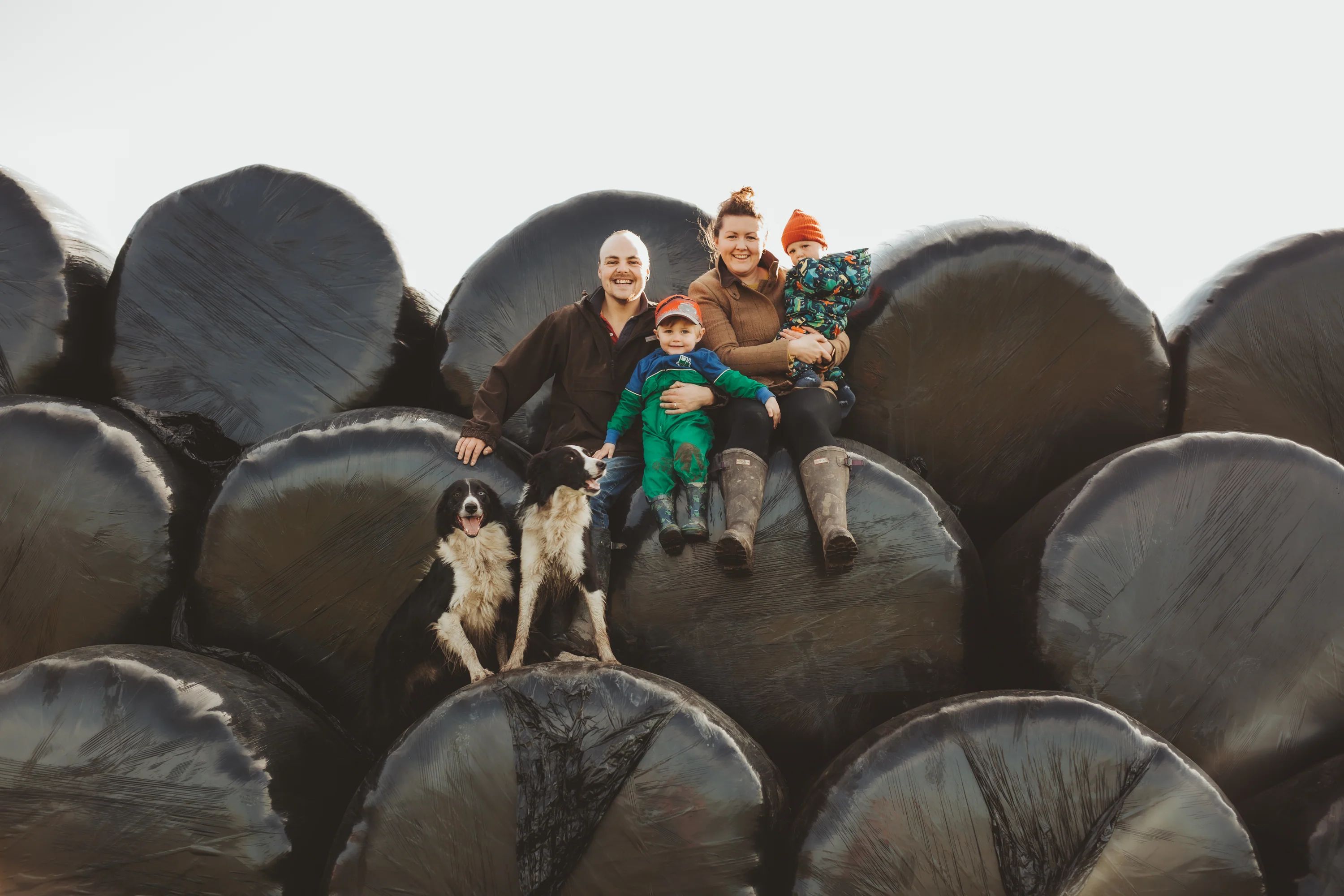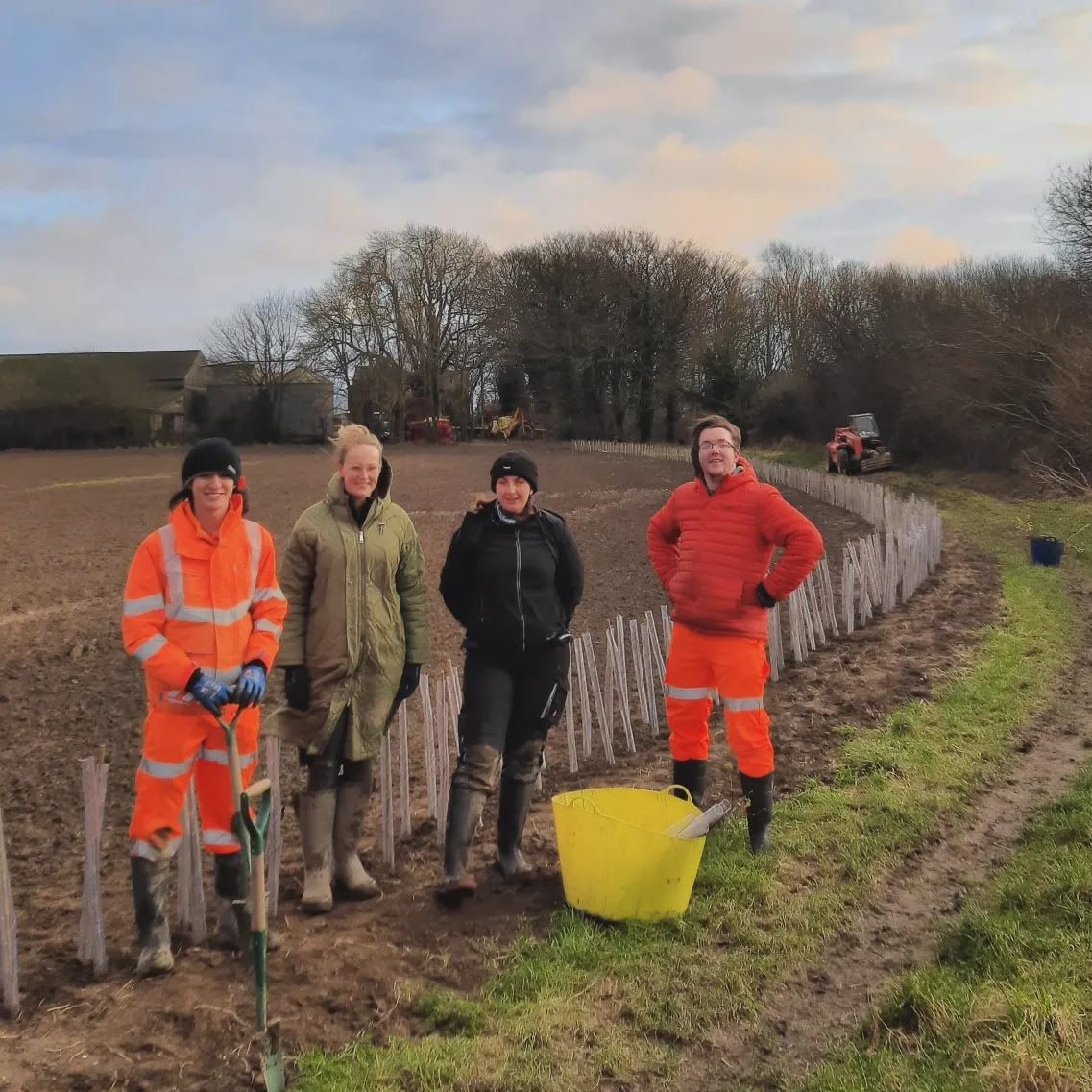The Future of Farming
While Yorkshire farmers face a complex set of challenges, change can and is being made be made to keep the industry alive
By David Hall

In Belgium farmers sprayed riot police with manure. In Wales, hundreds of tractors blocked roads and in France, hay bales littered central Paris. As Nick Grayson, a tenant farmer and chairman of Future Farmers Yorkshire put it: “Farmers were getting a little fed up.”
In the past few months sustained action across Europe points to an industry in crisis. From central groups like No Farmers No Food being linked to climate denial to Welsh farmers' opposition to sustainable climate schemes, it seemed like we were entering into an era of farmers v the environment. But farmers in Yorkshire reveal a much more complex picture – one of an industry fighting multiple complex challenges whilst trying to present environmental solutions.
"Farmers are getting a little bit fed up with being the constant blame of climate change. Nobody really understands that we are probably one of the biggest answers to it. The soil is a farmer's living,” says Nick Grayson. He argues that 50-60 years of government policy and the need for cheap food is to blame for unsustainable practices, not the people who work the land.
Farmers face continual problems. “We are in the hands of the government and the hands of the weather gods, neither of which we can really control,” says Nick. He doesn't feel protests are the solution because dramatic action, like those seen in Europe, could upset the UK public.


Nick and Carys Grayson at Nether Haugh Farm (Source: Nick Grayson)
Nick and Carys Grayson at Nether Haugh Farm (Source: Nick Grayson)

While there are debates on the best schemes to reward farmers for sustainable work, the need for action isn’t questioned. Alex Fraser took over Denby Hall farm in 2018 alongside his wife and brother. He says: “Since we've taken on the farm all the kinds of met office records have been broken. The driest springs or wettest summers make things a big challenge for us, but that's not unlike any other farmer.
“All the numbers tell us that the weather is changing and I think we urgently need to find resilient farming models that can cope with that and possibly rethink the current ways of food production.”
Pivoting from their previous roles as junior doctors to produce organic food on the 260 acre-farm, both Alex and his partner had no prior knowledge of farming. Without the benefit of learning farm practices in their youth, it was a challenge to pick up the basics. However, he says: “it was also a huge benefit to start farming without any preconceptions about how things should be done. I think that is what has set us up to do things differently.”
They focus on environmentally sympathetic methods that boost biodiversity, and water quality and are carbon-negative. The farm planted over 3,000 trees last winter in what was their largest arable field. Which was historically just one big monoculture. Through winter they hosted 80 volunteers who came to help plant the trees and see first-hand what an organic farm looks like.
He says: “We're very grateful for the support that is out there to organic farmers. And we think it encapsulates the greater benefits to society and to the climate that organic farming offers.”
Professor Ian Bateman an environmental economist, who has advised seven secretaries of state, argues that although subsidies, which equal £3.7 million, have pivoted to environmental actions, they have not been good value for the taxpayer or farmers.
"What is rarely talked about is if you have a scheme, which pays the same amount everywhere, then the more land you've got, the more money you can get, disadvantaging smaller farmers," he says the system needs a radical transformation.
So far schemes have paid for actions rather than outcomes and have paid the same amount per hectare everywhere. This can result, for example, in farmers taking action on biodiversity where it isn't needed. The introduction of new Environmental Land Management (ELM) schemes is supposed to change things but Ian says that the way they’re being implemented isn’t producing this.
Chris Harrap head of estates at Tyers Hall Farm and Co-facilitator of the Dearne Valley Farmers cluster group grew tired of waiting for the new ELMs schemes to be implemented and instead utilised the countryside stewardship scheme. It was a big change moving from area payments to being paid to do environmentally positive work on farms but a lot of the work was already being done.
The cluster that Chris co-facilitates planted 7km of hedgerows this winter and continues to bring farmers together to explore soil health, biodiversity enhancement, regenerative agriculture and natural flood management.
"Farmers are stewards of our landscape and they know that farming sustainably is key to their future, but we must ensure they are supported in these efforts, not just by government policy, but also by paying a fair price for the food they produce.”
There's a disconnect between the farmer producing the food and our fellow citizens buying food from the shelves. The supermarkets have significant buying power, which also means they have a responsibility to give farmers longer-term, predictable, stable contracts," Chris says.
International market competition, especially with some recent trade deals allowing imports of food produced to lower standards, can leave UK farmers unable to compete in some circumstances. However, Chris admits solutions are complex.
“The price of food should factor in the real costs of production, and any resulting benefits. Produce from nature-friendly farming methods seems expensive, especially in a cost of living crisis, but studies show it is actually cheaper, all things considered.”
Jenny Palmer is the Agricultural Officer for The Don Catchment Rivers Trust, who support farmers in reducing water pollution from agriculture. She also co-facilitates the cluster. Their remit is environmental improvements, especially of the river so they welcome Defra’s new environmental policy and the sustainable farming incentive but they also want to ensure farmers are paid well.
“Farmers are very keen to do good for nature, but they are also keen to earn a living.
"There is a risk that we will lose farmers. They tend to be older and studies have shown that more farmers will go out of business really, which is a shame.” She says.
But what will the future look like? The complex challenges will likely remain but more solutions and opportunities for farmers to transform practices are being pushed every day. Nick believes "In 10 years, it could be a completely different industry but those that managed to make it will be doing really well for themselves."

Riverlution volunteers supporting Dearne Valley Farmers cluster member Lucy Stevens with hedgerow planting at Horncastle Farm, Havercroft (Source: Jenny Palmer)
Riverlution volunteers supporting Dearne Valley Farmers cluster member Lucy Stevens with hedgerow planting at Horncastle Farm, Havercroft (Source: Jenny Palmer)
